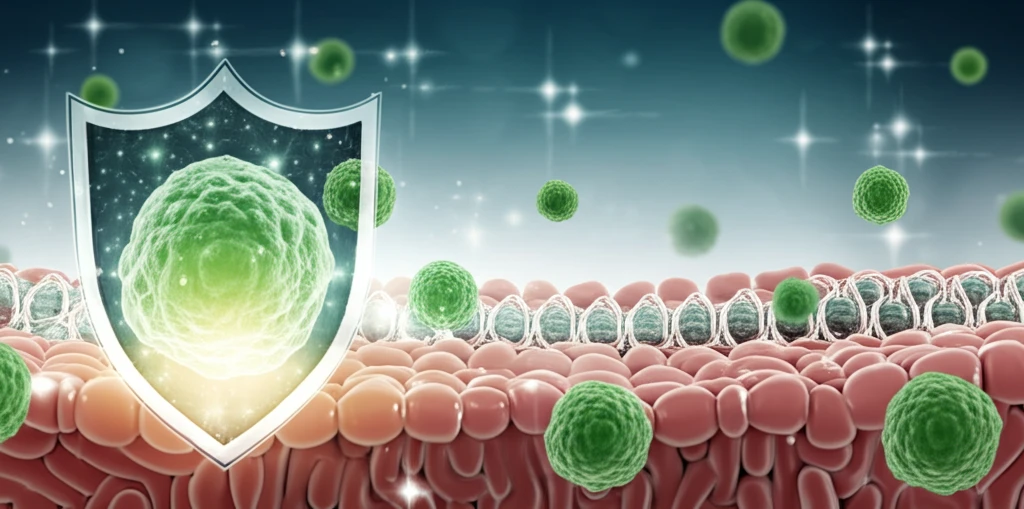
Gut Health Hack: How Glutamine Protects Your Liver From Alcohol Damage
"Discover the surprising role of glutamine and EGFR in preventing alcohol-induced gut and liver damage, and how you can protect your health."
Alcohol's impact extends far beyond the occasional headache. It can wreak havoc on your gut and liver, leading to a host of health problems. But what if a simple, natural substance could offer protection? Recent research has uncovered the potential of glutamine, an amino acid, to mitigate alcohol-induced damage. This article explores how glutamine works, the science behind it, and what it means for your health.
The gut-liver axis is a critical connection in your body. When alcohol disrupts your gut's barrier function, it allows toxins to leak into your bloodstream, leading to inflammation and liver damage. This condition, often referred to as 'leaky gut,' is a significant factor in the progression of alcoholic liver disease (ALD).
Scientists have been investigating the role of epidermal growth factor receptor (EGFR) and glutamine in preventing alcohol-induced gut barrier dysfunction, endotoxemia, and liver injury. The study, published in The Journal of Nutritional Biochemistry, sheds light on how glutamine, mediated by EGFR, can protect against these harmful effects.
Glutamine: Your Gut's Unsung Hero?

Glutamine isn't just another supplement; it's a naturally occurring amino acid that plays a vital role in maintaining the integrity of your gut lining. Your intestinal cells use glutamine as a primary source of fuel, helping them to repair and regenerate. When alcohol disrupts this process, glutamine steps in to help restore balance.
- Reduces Gut Permeability: Strengthens the gut lining, reducing the risk of 'leaky gut.'
- Prevents Endotoxemia: Blocks the entry of toxins into the bloodstream, reducing inflammation.
- Supports Liver Health: By maintaining gut integrity, glutamine indirectly protects the liver from alcohol-induced damage.
Protect Your Gut, Protect Your Health
Incorporating glutamine into your diet may be a proactive step toward safeguarding your gut and liver health, especially if you consume alcohol regularly. Remember, it is essential to consult with a healthcare provider before starting any new supplement regimen. Prioritize a balanced diet, stay hydrated, and make informed choices to enhance your overall well-being.
